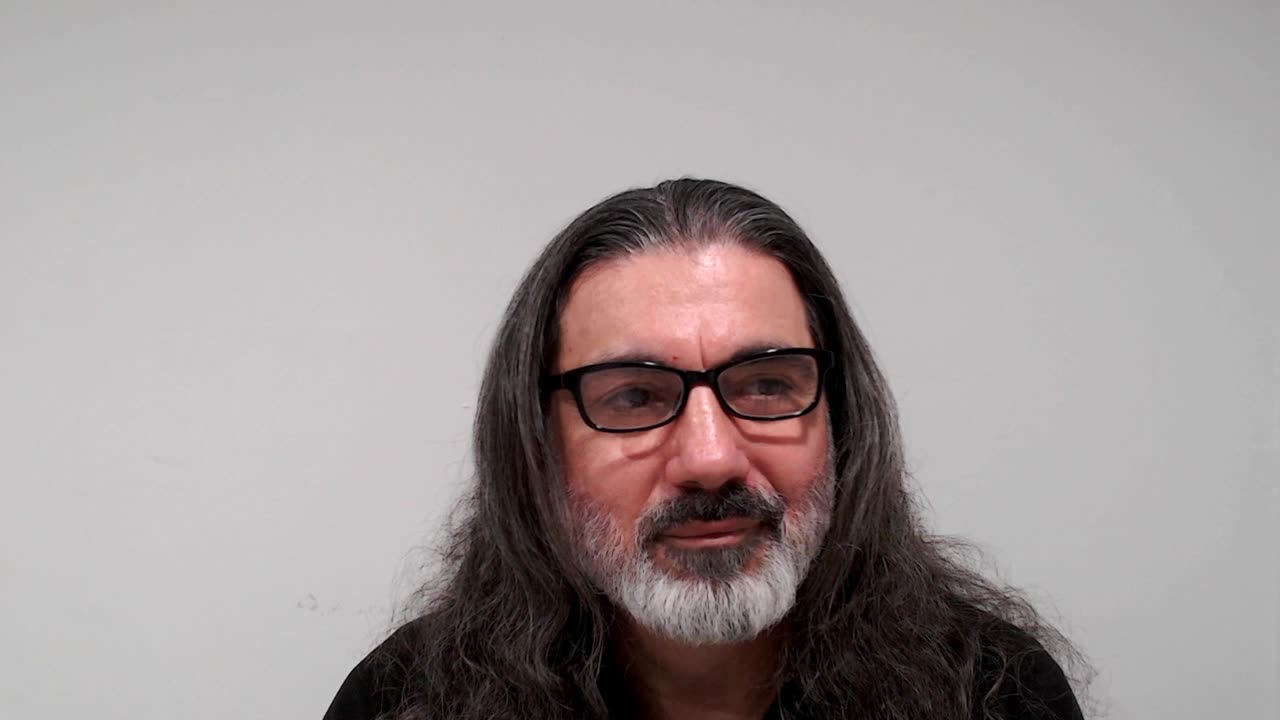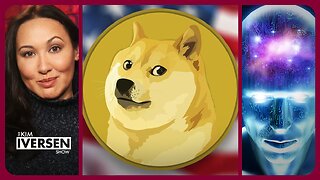Premium Only Content

Shooting From The Hip - 12 - Human Learning, Montessori Education
Prerequisites for learning: 5 Things important to life & learning
1) Sleep: Quality rest - on average per night; whatever amount of sleep allows you to feel functional for the individuals life
Age group Recommended amount of sleep
Infants 4 months - 12 months 12 - 16 hours per day, including naps
1 - 2 years 11 - 14 hours per day, including naps
3 - 5 years 10 - 13 hours per day, including naps
6 - 12 years 9 - 12 hours per day
13 - 18 years 8 - 10 hours per day
Adults 7-8 hours a night
2) Exercise: An hour a day, every day; of some kind of vigorous activity. One that increases heart rate, breath rate. Physical & psychological health.
3) Regular exposure to sunlight: Dr. Christopher Starr, an ophthalmologist from Weill Cornell Medical College, suggests 1-3 extra hours per day should be spent outside. This is in addition to school recess time. Dr. Starr explains that dopamine, a known inhibitor of eye growth whose release is stimulated by light, prevents elongation of the eye. Lack of dopamine results in the eye becoming more elongated, resulting in nearsightedness.
Regular sun exposure is the most natural way to get enough vitamin D. To maintain healthy blood levels, aim to get 10–30 minutes of midday sunlight, several times per week. People with darker skin may need a little more than this. Your exposure time should depend on how sensitive your skin is to sunlight. At night dim light exposure.
4) Nutrition: Keto, Carnivore, Omnivore, Vegan, Vegetarian - which ever works for you, the individual - 80% your food from non-processed whole foods
5) Connection, Social Interactions: Make every effort to have healthy interactions with friends & family whether online & in person. Be in contact with people for as long as you can maintain sympathy, empathy & sense of connection. This could mean; an absolutely minimum or to not at all. For some people in order to care from them at all, requires distance, not familiarity.
Humans: = natural inclination to learn - assign meaning to things, to construct meaning out of what is happening
1. Mind naturally seeks to make order out of chaos
2. Predisposed to make sense of the world-reality
3. Knowledge is essential to learning & perception.
4. Ambiguity of outside world, we project on the unknown, attempting to understand & make sense of experience & environment
5. Perception is a product of mind, not what we see with our eyes. Eye are receptor, the brain interprets what we are seeing.
6. Heavy reliance on knowledge to perceive, what are senses are telling us. Input data. Using what is in our head to understand, what we interact with out here
Learning: 1. is a change in cognitive structures that occurs as a result of experience 2. the more you know, the more you can learn 3. learning is not a passive activity - it's an action, to be actively engaged - no one can do it for you
4. learning is the act of making connections, between experiences & knowledge:
5. Rote learning; pure memorization, disconnected information, out of context - information without understanding
6. Meaningful Learning; is connection of information to experience, for the purposes of understanding
7. Metacognition; is checking for comprehension of information, do you understand what you are learning
8. Learning changes the brain, neuro-genesis, strengthen neuropathways, neuro-networks - new brain structures, changes the way we perceive
Truths Of Human Learning: 1. Learning is a constant state from birth to last breath 2. Naturally inclined to learn 3. All humans will learn; if the material is interesting or presented in an interesting way 4. Human learning is cyclical not linear. We don't learn something & from then on know it. Cyclical learning- meaning we need to connect things & revisit information, become familiar with material, lead to higher levels of understanding 5. Technically there is no such thing as a learning disability: by definition, human beings are designed to learn: there are however * learning-certain-kinds-of-things disability * learning-school-things disability * learning-things-you-don't-want-to-learn disability * learning-unnaturally disability
Montessori education - started in the early 20th century by Italian physician Maria Montessori, who developed her theories through scientific experimentation with her students - involves children's natural interests & activities rather than formal teaching methods. A Montessori classroom places an emphasis on hands-on learning & developing real-world skills
It emphasizes independence & it views children as naturally eager for knowledge & capable of initiating learning in a sufficiently supportive & well-prepared learning environment. It discourages some conventional measures of achievement, grades & tests
-
 2:26:29
2:26:29
Laura Loomer
5 hours agoEP108: Dems Embrace Domestic Terrorism To "Get Trump"
44.9K12 -
 3:01:51
3:01:51
Right Side Broadcasting Network
8 hours agoWATCH: NASA’s SpaceX Crew-10 Launch
90.6K38 -
 2:06:17
2:06:17
Glenn Greenwald
7 hours agoJudge Orders Hearing on Columbia Student Deportation Case; Is the Ukraine Ceasefire Plan Serious? Trump Attacks Thomas Massie for His Budget Vote | SYSTEM UPDATE #422
108K146 -
 47:16
47:16
BonginoReport
9 hours agoTrump-Elon Bromance Triggers The Libs (Ep.03) - 03/12/2025
143K267 -
 4:03:41
4:03:41
Barry Cunningham
10 hours agoTRUMP DAILY BRIEFING: PRESIDENT TRUMP PRESS CONFERENCE | DEMOCRATS IN PANIC!
95.9K95 -
 1:56:30
1:56:30
Melonie Mac
8 hours agoGo Boom Live Ep 40!
52.5K5 -
 1:58:30
1:58:30
Kim Iversen
8 hours agoDOGE, Trump, Aliens and Remote Viewing: A Deep Dive into the Unknown
67.8K52 -
 1:20:08
1:20:08
Redacted News
10 hours agoPutin smells a TRAP as Ukraine agrees to Trump's U.S. ceasefire plan | Redacted w Clayton Morris
177K170 -
 51:59
51:59
Candace Show Podcast
10 hours agoMahmoud Khalil’s Detainment: Fighting Terrorism Or Speech? | Candace Ep 158
130K411 -
 7:43:31
7:43:31
Dr Disrespect
14 hours ago🔴LIVE - DR DISRESPECT - PUBG - PRO TACTICALLY WINNING
177K16